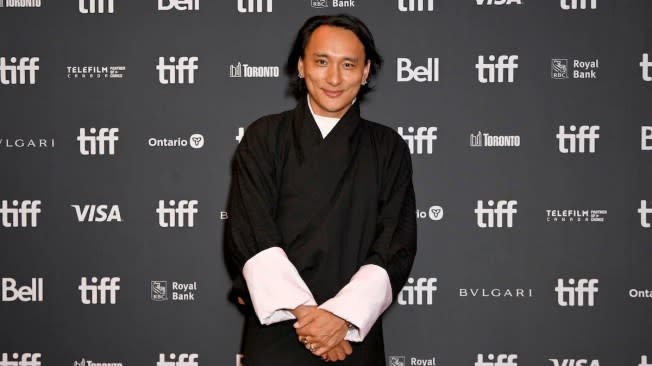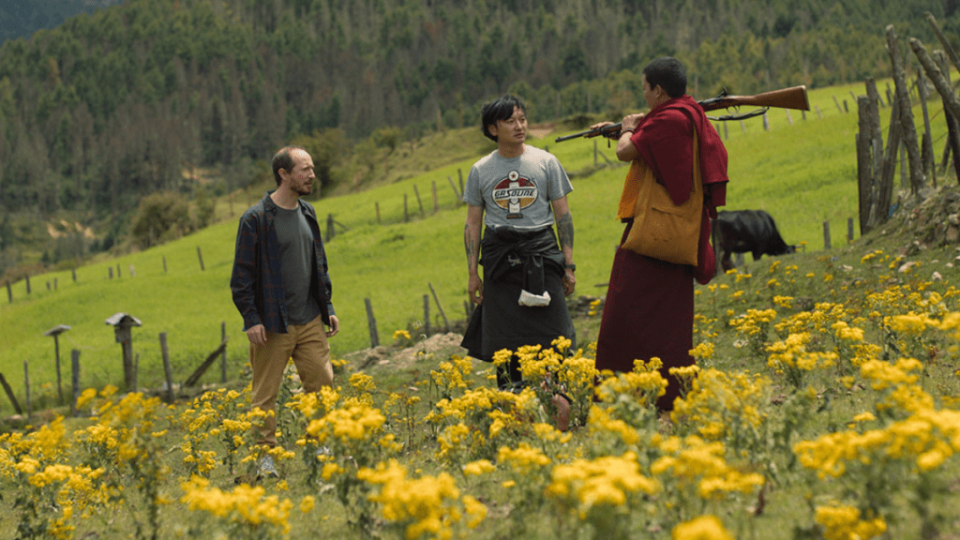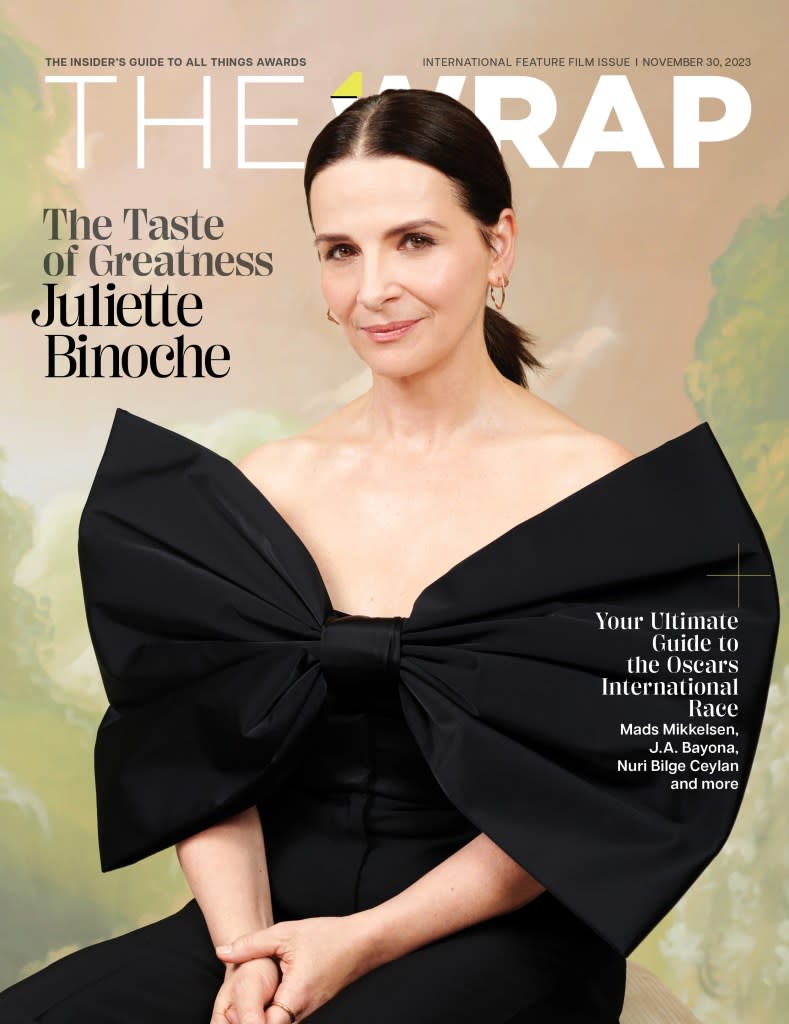How ‘The Monk and the Gun’ Director Found Inspiration in Bhutan’s Changing Society
- Oops!Something went wrong.Please try again later.
- Oops!Something went wrong.Please try again later.
Two years after his “Lunana — A Yak in the Classroom” gave Bhutan its first Oscar nomination, Pawo Choyning Dorji is back with another tale from that mountainous Asian country. “The Monk and the Gun” is set in 2006, when Bhutan was modernizing and moving toward democracy, even though its citizens hadn’t expressed any real desire to replace the country’s king with free elections.
“The Monk and the Gun” juxtaposes a mock election designed to teach the Bhutanese how to vote with a monk’s mysterious quest for a gun that is also coveted by an American collector.
It must have been odd to make “Lunana” and have your first film go all the way to an Oscar nomination.
Yeah. “Lunana” was such an amazing journey. We went through a lot of hardship just to get the film made. We didn’t have any sales agent, we didn’t have any distributors. In the beginning, when the film was made, all I was doing was collecting rejection letters from film festivals.
It can be quite challenging when you work that hard to make something and then people don’t even see it. But as a Buddhist, I believe in karma, and I believe that if you have the right motivation and you work hard, things start turning around. And it was amazing to see the film go from this remote school (where the film was shot) and make its way through the world and end up as an Oscar nominee. But I’ll be frank: When I got Oscar nominated, I was scared. I’m aware that for filmmakers, an Oscar nominee is like almost the pinnacle of one’s career. You work hard for so many years. You make all these sacrifices and this is what you yearn for.
I did work hard, but I somehow stumbled upon it with my first film. And I was telling people that if I get an Oscar nominee with my first film, now I have nowhere else to go but to fall down. [Laughs] And it’s going to be a big fall. It was very pressuring, especially in Bhutan, where people don’t realize how difficult it is to become an Oscar nominee. And I tried my best to block it out, you know? The first day of our film shoot, I gathered all my crew and my cast, and I said, “The journey of ‘Lunana’ is finished. This is a second chapter, and I don’t want to hear anything about Oscars.”

How did this idea come about?
I had a very interesting upbringing because my father was a diplomat. I lived in Switzerland. I lived in the Middle East. I lived in India. I did my college in the U.S. I grew up experiencing the outside world, but every summer I would go back to Bhutan and experience this country that was unlike anywhere else. At that time, the country was so isolated. TV was not allowed, internet was not allowed. I grew up outside where I would drink Coca-Cola, I would eat Big Macs at McDonald’s, I would watch Cartoon Network and Nickelodeon. And I would go back to Bhutan knowing that for the next three months, I had no TV, no internet, no Happy Meals.
Even though Bhutan was like that, there was genuine happiness and contentment with what we had. But in 2006 or 2007, our king realized that the world is changing and we can’t afford to be left behind. So we became the last country in the world to allow television, the last country in the world to allow internet. And I think we are the only country in the world where democracy was introduced when no one asked for it. [Laughs]
I was a teenager in that period, and being an outsider but also a Bhutanese, I had a very objective outlook on everything. And I thought, wow, what an interesting time. And after I made “Lunana,” I was thinking of, what can I make next? I thought this would be an interesting topic, because the world didn’t know that Bhutan went through this.

The first film was a glimpse inside Bhutan, but this movie also brings in more of the outside world, particularly via the American gun collector.
I really wanted to build on what I had achieved with “Lunana” and challenge myself as a storyteller. I also wanted to play around with political satire and tell a story of my country in this state of transition. The gun for me really symbolized the coming of modernization, but then there’s the sense of innocence, because these people have never seen a gun before, and they don’t know what the gun represents. To me, the guns symbolize modernization, globalization. On the other hand, the phallus [a giant red phallus sculpture presented ceremonially] represents the culture, the tradition, the values of the Bhutanese. So I wanted to have contrasting elements.
And it’s interesting, because I’ve been traveling with the film a lot, and when it premiered at Telluride, the North American audience related to the democratic jabs and the gun jokes. At Busan in Korea, the Koreans seemed to really connect with the story of the culture, the change, the family values. We won the Audience Choice Award at the Bombay Film Festival, and the Indians seemed to really like the humor but also the spiritual aspects. And when it went to Bhutan, everyone was crying because they related to that period in our history when we tried to become modern and we were losing that innocence.
It reminded me of the story of the blind men who were taken to see an elephant, and they felt different parts. When I made it, I was worried that maybe I’m trying to do too much. But the audiences have been very supportive, and it’s encouraging.
“Lunana” was famously difficult to shoot because you had to walk for 10 days to get to the mountain village where you shot it and use solar batteries because there was no electricity there. I take it this one wasn’t as difficult.
It wasn’t. There were no 10-day walks. But still, when you compare it to Hollywood productions, it’s very difficult because the place where we were staying was a village. There’s no hotels there, so all the crew and cast had to stay in village homes. The location was a 10-hour drive from the city, which was still quite far. And in Bhutan we didn’t have any filmmaking equipment, so all our cameras and lights had to be brought in from India, which was a five-day drive with border crossings. When you have trucks of film equipment on the road for five days, crossing country borders and climbing up the mountains, it’s a big risk, you know?
And because the film industry in Bhutan is really, really small, we don’t really have professional actors. I think when you make comedy, you really have to have good actors. But all my actors in “The Monk and the Gun” are first timers. I tried to combine the authentic performances that are coming from these first-time actors. It was sometimes challenging, but I think a lot of it came together in the editing room.
So when you go back to Bhutan now, can you get Big Macs and Coca-Cola?
Oh yes. Well, no Big Macs still. We don’t have McDonalds. We don’t have Starbucks. But you can definitely get Coca-Cola.
A version of this story first ran in the International Feature Film issue of TheWrap awards magazine.
Read more from the International issue here.

The post How ‘The Monk and the Gun’ Director Found Inspiration in Bhutan’s Changing Society appeared first on TheWrap.

